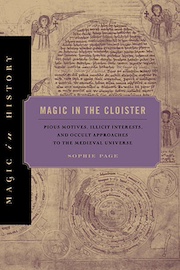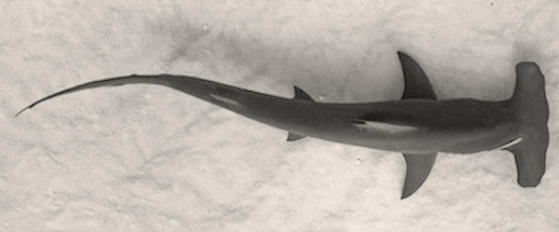Disclaimer
I do not practice magic. This page is for informational purposes only, and I cannot help you if you get into any supernatural trouble.
I tried to resist.
I really did.
But magic doesn't really care if you're a skeptic. If your temperament is otherwise prone to its wiles, it will weed its way into your life. In college I spent countless hours procreastinating on my "official" studies, plunging into the depths of the campus library's rare book collection and studying magic far into the night - even into what some would call the "witching hours." I was enchanted.
Unsurprisingly, this wreaked havoc on my physical and mental health. But, all things considered, I am grateful for the academic study of esotericism. It gave me an excuse to indulge my obsessions, hopefully without falling into madness.
This page is dedicated to some of the spiritual books and related media I have consumed. It's not intended as a syllabus or any kind of organized learning guide; there are many real course syllabi floating around, and it would be redundant for me to make my own. My interests have also shifted over time, so not all of the content below fits the definition of "esotericism" - at least not in its most Eurocentric sense. For instance, some content references Kabbalah and African diaspora religions, though I am aware that these are not necessarily considered "magic" by their own followers, practitioners, and believers. I have also included topics like modern paganism because of their influence on magical knowledge and practice.
If you have any comments, questions, or recommendations, feel free to email me here.
Magic in the Cloister: Pious Motives, Illicit Interests, and Occult Approaches to the Medieval Universe - Sophie Page (Penn State University Press, 2013)
 My impressions of Magic in the Cloister are tinged with nostalgia, as it was the first book on esoteric studies that I encountered while stumbling around my college's "science" library. I was expecting a book exclusively about how the monks of St. Augustine's Abbey in Canterbury were rebelliously subverting anti-magic dogma, but it was anything but that: Page describes the "unorthodoxy" of the magical texts in order to reconcile them with Christian beliefs in ways plausible for the monks. I didn't fully understand what I was reading at the time, but I'm glad I eventually returned to it years later, after my broader understanding of esoteric studies improved. That being said, I don't think you need an extensive knowledge of esotericism to enjoy this book. Sophie Page clearly devotes one chapter for each of the writings she focuses on: the Liber vaccae, the Liber de essentia spirituum, and the Ars notoria. I have personally only read the Ars notoria, but Page gave enough basic background information about the first two for me to grasp what they were about. However, you will probably have to take notes anyway, since Page does reference other texts not focused on in the book.
My impressions of Magic in the Cloister are tinged with nostalgia, as it was the first book on esoteric studies that I encountered while stumbling around my college's "science" library. I was expecting a book exclusively about how the monks of St. Augustine's Abbey in Canterbury were rebelliously subverting anti-magic dogma, but it was anything but that: Page describes the "unorthodoxy" of the magical texts in order to reconcile them with Christian beliefs in ways plausible for the monks. I didn't fully understand what I was reading at the time, but I'm glad I eventually returned to it years later, after my broader understanding of esoteric studies improved. That being said, I don't think you need an extensive knowledge of esotericism to enjoy this book. Sophie Page clearly devotes one chapter for each of the writings she focuses on: the Liber vaccae, the Liber de essentia spirituum, and the Ars notoria. I have personally only read the Ars notoria, but Page gave enough basic background information about the first two for me to grasp what they were about. However, you will probably have to take notes anyway, since Page does reference other texts not focused on in the book.
Highlights of the book were the frequently referenced connections to al-Kindi's De radiis, "monstrous birth" in the Liber vaccae (Ch. 2), and the amusing realization that the oh-so-spooky Ars notoria was often used to help Christian college students cheat.
Trigger warning: There are some gruesome descriptions of violence to animals, particularly experimentation in the Liber vaccae from Chapter 2.
The header is a photo of a hammerhead shark. Credit to Michael Worden.
